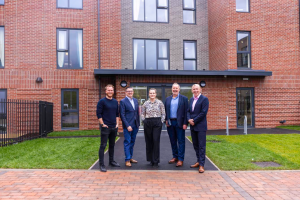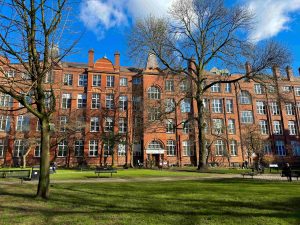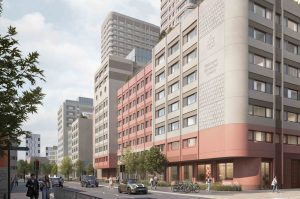Trafford Park to become pilot business neighbourhod

THE Trafford Park industrial estate and Liverpool Innovation Park are two of six new pilot areas to be given greater planning freedom as part of the government’s new localism bill.
The areas have been chosen as “business neighbourhoods”, which will allow companies within an area to take control over local planning issues.
Greater Manchester Chamber of Commerce welcomed the inclusion of Trafford Park as one of the first wave of business neighbourhoods, which it said had been established following a national campaign to get governments to change the localism bill currently being debated in Parliament to allow businesses more of a say in areas where they dominate.
Chris Fletcher, director of policy, research and external affairs at Greater Manchester Chamber of Commerce, said: “This is a great result and a massive boost for Trafford Park.
“We have worked hard and responded quickly when needed to make sure that Trafford Park made it to the pilot stage.
“As the largest industrial estate in Europe, the delivery of the business neighbourhood plan will help give it new momentum to help firms already there and also help bring in new business that will benefit not just Trafford but the region as a whole.”
Other changes proposed by the localism bill have not been as well received by the sector, though.
DTZ’s Director of Planning for the north of England, John Brooks, argued that business should be given more of a say in development matters in larger towns and cities, where their views would be outnumbered by local residents.
“The proposals as they stand may be suitable for small villages or the suburbs where local residents live, but they are not appropriate for the mix of residents and workers in larger towns and cities,” he said.
“It is important to involve local businesses in the planning process together with residents. Businesses’ views on planning go hand in hand with those of residents and striking a balance between the two voices is key.”
Moreover, he argued that a proposal to scrap a developers’ right to appeal against a rejection of its planning applications could hinder development activity.
“Relying solely on local councils to make decisions about what happens in their local areas could prevent vital facilities from being built, particularly where proposals have a greater than local significance.
“Understandably, councillors representing local people may oppose locally controversial schemes.
“The problem with this very localist approach is that it does not take into account the wider needs or benefits that a development brings to a neighbourhood, town/city, or region.
“Therefore, anything other than the least controversial development is stopped.”








